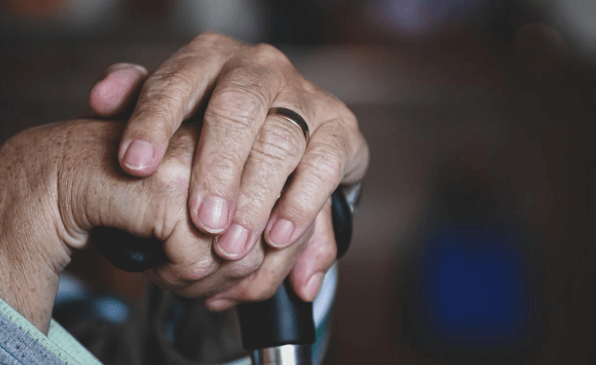Not All Nursing Homes Are Equal – A Brief Guide About Neglect

From the day a child is born, their parents look after their every need. When parents get older, the tables are turned, and the child – who is a grown adult now – has to look after their aging parents. Speaking of looking after one’s parents, it can be challenging to find the right level of care that suits their needs.
There are loads of options out there regarding nursing home facilities – but – not all of them are great.
Not All Nursing Homes Are Great
When your aging parents don’t want to go anywhere else but their home, where they have lived their entire life – making this decision can be extremely difficult. Sometimes, you have to take charge and become their parent to make difficult decisions for them.
Nonetheless, not all nursing homes are equal.
What Qualifies as Nursing Home Abuse?
The thing that qualifies as nursing home abuse is the failure of the nursing home and its staff to meet the essential standards of good nursing home practice. A common issue that you can see in nursing homes with bad situations is that the management does not want to spend the money necessary to provide adequate care to its residents.
There can be a wonderful staff that is assisting the residents all day while doing the best that they can – but – they have just been assigned so many residents that they cannot possibly provide them with adequate care that they need.
Be on the lookout for potential failures in the quality of care, such as the following:
- Poor hygiene
- Poor sanitation practices
- Failure to transfer ill residents to the healthcare center in a timely manner.
- Unexplained injuries
- Malnutrition
Changes in behavior
Also, look out for harm and neglect. Nursing home neglect happens when nursing homes fail to give senior residents the attention and care they need. Catching the signs can help you determine if the nursing home is neglecting your loved one.
Unsanitary Conditions
Usually, when a nursing home doesn’t have enough staff or the workers aren’t well-trained – residence hygiene is the first thing to get affected. Nursing home staff are responsible for helping the residents with the following:
- Brushing teeth
- Bathe
- Clip nails
- Change clothes
- Brush hair
On that note, a lack of hygiene in any of these areas can be a sign of neglect. Unsanitary living conditions are signs of nursing home neglect. So, if your loved one has no access to clean bedding or clothes, it can be a sign of neglect. Also, if the kitchen or bathroom is dirty – it is also a sign of neglect.
Physical Conditions
Physical weakness, illness, and unexplained weight loss are also signs of neglect as it is caused by malnutrition. Usually, malnutrition in a nursing home happens when the facility is experiencing higher traffic.
The nursing home might also fail to give its residents the individualized care they need. Serious malnutrition can cause illness and can prove fatal, too.
Unexplained broken bones and bruises are clear signs of abuse. It also indicates that your loved one isn’t receiving the care they need. When your elderly loved one is at the nursing home and tries to do something, such as getting dressed or walking without help – there is the constant risk of falling and getting injured.
Bed Sores – More Common than You Think
According to law, the staff of nursing homes have the responsibility of keeping the family informed about the current health of their loved one. Many times, the elderly loved one might develop a bedsore, which can happen at the base of their spine or their heels. Meanwhile, their family might not know anything about the sores.
It starts as a red spot on the area that is pressed against the bed too long. If the nursing home staff treats the sore right away, it won’t get out of order. But – there are cases where the sores of the elderly seniors got so bad that they turned into ulcers all the way to the bone.
So, watch out for bed sores when visiting your loved ones at the nursing home facility.
Behavioral Conditions
When you detect sudden changes in behavior, it could also mean neglect. For instance, your loved one might try to isolate themselves from others. They might not greet you or show signs of happiness – on the other hand – they can show signs of anger or depression.
They might also feel reluctant to talk in front of the nursing home staff.
Nursing Homes Can be Held Liable
Ideally, a nursing home should minimize hazards such as low lighting, wet or slippery floors, and unsafe equipment lying around. Nursing homes are legally responsible for providing good care and attention to the residents. If you believe that your loved one is going through neglect at the nursing home – you should contact an attorney, as the nursing home can be liable for any consequences.
The liability can include the following:
- Medical bills
- Out-of-pocket expenses
- Pain and suffering
If your loved one seems to suffer from neglect and you are wondering if you have a claim, you should check out this My Nursing Home Abuse Guide and contact an attorney to help you file for a claim. The lawyer can also give you a free consultation on the matter so you know what to expect.
What to Do Before Your Loved Ones Go to a Nursing Home
To avoid neglect at the nursing home, make sure to do your research and read the reviews to know what people have to say about the nursing home. Trust your instincts when you visit the facility, as your gut feelings won’t lie.
Often, when loved ones enter nursing homes, it is usually at the height of some stressful situation where you need help to look after them. Instead of rushing through the paperwork, you should know what you are signing up for. So, make sure to actually read the huge pile of papers before you sign them. It might be a good idea to consult with a lawyer and go through the fine print together before signing the paper.



